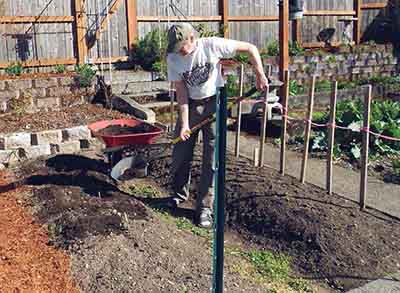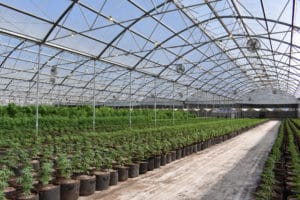
Gardening soil amendments are great for your garden!
Most people use this word to simply describe a substance that helps soil change its properties when added to it.
We mold out this definition simply to provide clarity and distinguish our customers. In this era, we heavily focus on the chemical inputs like fertilizers, etc., but we ignore the other two types of soil amendments. At Sohum Soils, we divide the soil amendments or conditioners into three distinctive categories:
Fertilizers: They may be organic or synthetic. It is a soil amendment that provides nutrients to the plants.
Soil inoculants: Soil inoculants are particles that improve the soil food web by adding biology to the soil. These substances, mainly focus on fungi or bacteria and some beneficial nematodes that play important roles in carbon cycles.
Soil Amendments: They are the substances that enhance the soil properties. They mainly focus on areas such as soil pH, soil compaction, cation exchange capacity, and water holding capacity.
Importance Of Soil Amendments:
Soil amendments mainly consist of organic matters. Plant and animal remains that are in various stages of decomposition (referred to as compost) are mostly used. Compost decomposes the soil immediately when added to it. It provides a rich food source for the microorganisms in the soil. They eat the plant and the animal remains and die eventually, thus adding themselves to soil composition. The end product is a dark-brown colored humus, which is extremely important to the soil composition because it readily forms chelates with the soil particles and increases the water holding capacity. We are helping the plants sustain a healthy life by providing organic matter as soil amendments.
Soil amendments are used to repair damaged soil and to help maintain the soil quality for plant life. When the soil amendments are added to the soil, they help loosen and replenish the soil. As well, as maintain nutrients that helps the plants to flourish. It is best to mix the soil amendments and the soil before planting. Although, they work great when placed on the top of the soil after planting the crop.
The soil’s ability to hold and release various elements and compounds that plants need for nutrition is through a process called Cation Exchange Capacity (CEC). Cation Exchange Capacity is balanced by adding soil amendments. Soil Amendments work by binding with the atoms that are needed for the plant to grow. They also released certain nutrients at the time when the plant needs them the most. The property of the soil is ultimately changed through the soil amendments to be a perfect state that a plant needs to grow.
Vital Roles Of Soil Amendments:
> Improved soil structure and aeration
> Increased water-holding capacity.
> Increased availability of water to plants
> Reduced compaction and hardpan conditions.
> Improved tile drainage effectiveness
> Alkali soil reclamation
> Release of “locked” nutrients
> Better chemical incorporation
> Better root development









